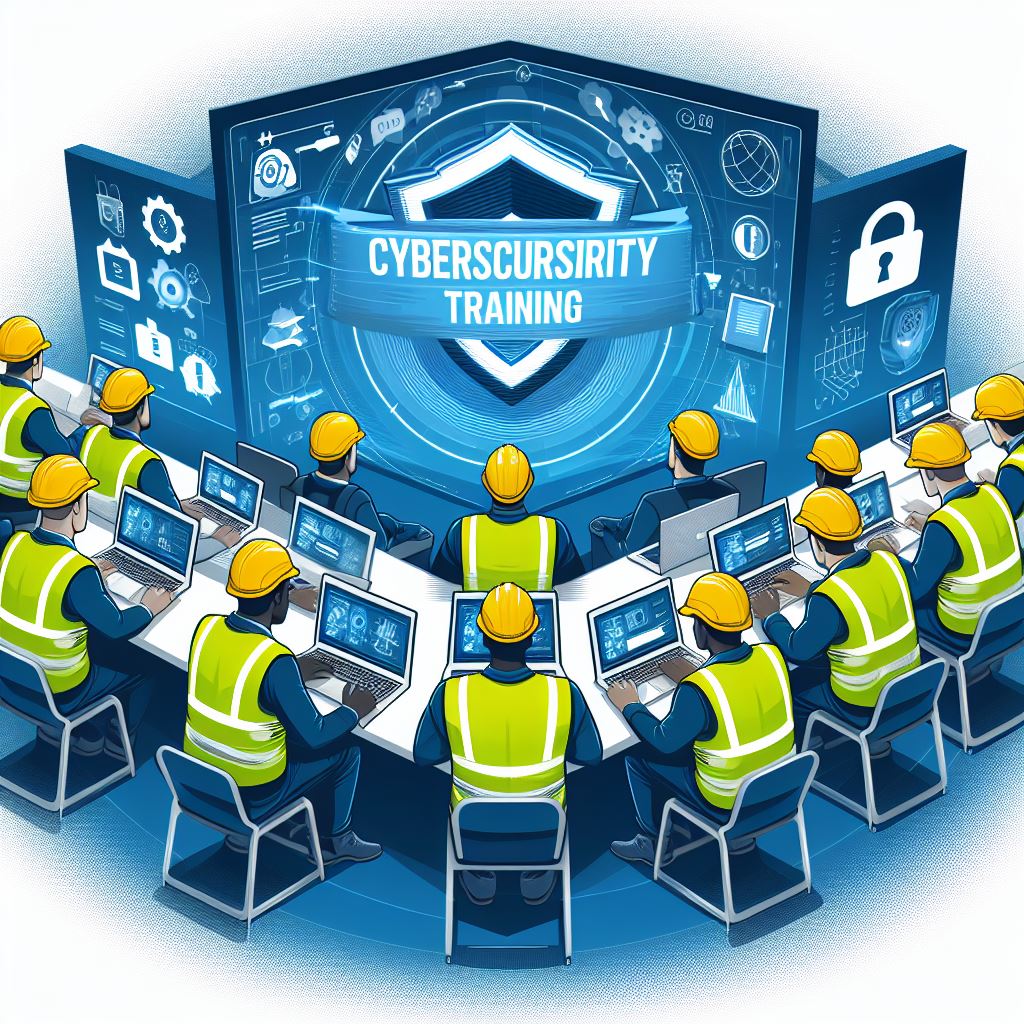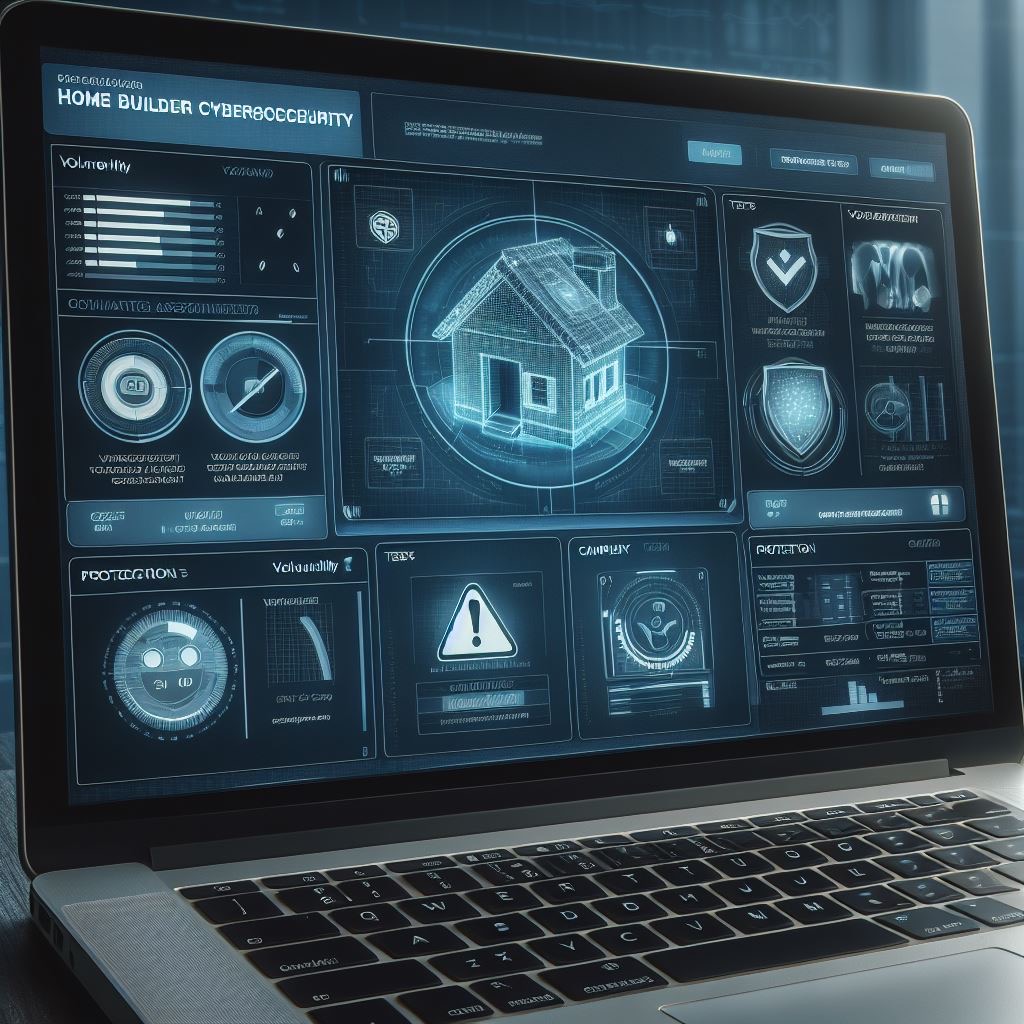
Defying All Odds - Day 25: Ransomware Defense Strategies for Construction Companies
“You have to be prepared to fight and finish your own battles.” - Jim Harbaugh
Introduction:
Ransomware attacks pose a significant threat to construction companies, as they can lead to data loss, operational disruptions, and financial losses. In this article, we will discuss effective ransomware defense strategies for construction companies. From regular data backups to employee training and robust network security measures, these strategies will help construction companies prevent ransomware attacks and minimize the potential impact. By implementing these defense strategies, construction companies can protect their critical data and maintain business continuity.
In our featured story, we talked about how ZATIS helped a construction company defy the odds and win in the battle against hackers and cybercriminals. Join us today as we discuss the best practices and strategies to combat the threat of ransomware attack in a construction company.

In football, a strong defense strategy is crucial to prevent the opposing team from scoring goals. Similarly, in the cyber arena, ransomware defense strategies are critical to prevent cybercriminals from scoring hits against your construction company. Ransomware is a menacing player in the field of cyber threats, capable of causing significant data loss, operational disruptions, and crippling financial losses. Let's dive into some effective tactics to defend your goalpost against ransomware attacks.
1. Regular Data Backups

In football, having a solid backup team ensures that the game can go on even if key players are injured. Similarly, regular data backups ensure that your business can continue to operate even if your data is compromised in a ransomware attack.
2. Employee Training

Just as every player needs to understand their role in defending against the opposition, every employee needs to understand their role in defending against ransomware. Regular training can help employees identify suspicious emails and avoid clicking on malicious links.
3. Robust Network Security

A well-fortified network is like a well-organized defensive line - it can effectively block most attacks. Implement strong firewalls, use secure Wi-Fi networks, and regularly update all software and systems.
4. Endpoint Protection

Endpoint protection tools are like goalkeepers, they protect your network by blocking threats at the device level. Ensure that all devices connected to your network are protected with up-to-date antivirus software.
5. Incident Response Plan

Having a plan in place for when a ransomware attack occurs is like having a strategy for when the opposition breaks through your defense. It can help you respond quickly and effectively, minimizing the damage.
6. Limiting Access Rights

Not every player needs to be on the field at all times. Similarly, not every employee needs access to all systems. Limiting access rights can reduce the potential damage if an account is compromised.
7. Threat Intelligence

Staying informed about the latest ransomware threats is like studying the tactics of your opposition. It can help you anticipate attacks and develop effective defenses. Like a well-coached football team, a construction company with a well-implemented ransomware defense strategy can defy all odds, protecting its critical data and maintaining business continuity even in the face of cyber threats. So, let's strap on our boots, set our defensive lines, and tackle ransomware head-on.

The Importance of Proactive Cybersecurity Measures
To mitigate the risks associated with cyber threats, construction companies must adopt a proactive approach to cybersecurity. Implementing robust cybersecurity measures can help protect the company's assets, maintain client trust, and ensure the smooth operation of projects. Here are some key steps that construction companies can take:
1. Employee Education and Training:

Employees are often the first line of defense against cyber threats. Providing comprehensive training on cybersecurity best practices, such as identifying phishing emails and using strong passwords, can significantly reduce the risk of successful attacks.
2. Regular Security Assessments:

Conducting regular security assessments, including vulnerability scanning and penetration testing, can identify potential weaknesses in the company's systems and infrastructure. This allows for timely remediation before cybercriminals can exploit these vulnerabilities.
3. Secure Network Infrastructure:

Implementing robust firewalls, intrusion detection systems, and encryption protocols can help safeguard the company's network infrastructure from unauthorized access and data breaches.
4. Access Control and Authentication:

Implementing strong access control measures, such as multi-factor authentication and role-based access controls, can ensure that only authorized individuals have access to sensitive information.
5. Data Backup and Recovery:

Regularly backing up critical data and implementing a robust disaster recovery plan can help minimize the impact of a cyber-attack and facilitate the restoration of operations.
Conclusion:
In an increasingly digitized world, the construction industry must recognize the importance of cybersecurity and take proactive measures to protect its valuable assets. Neglecting cybersecurity can have severe consequences, including financial losses, reputational damage, project delays, legal and regulatory compliance issues, and loss of intellectual property. By prioritizing cybersecurity and implementing robust measures, construction companies can safeguard their operations, maintain client trust, and ensure their long-term success in an evolving digital landscape.
Want to know if your construction company is at major risk of getting hacked? Click here for a FREE 15-Minute Cyber Consult.

5 Reasons Your Construction Company Needs a Cybersecurity Risk Assessment. 👊
It is important for construction companies to conduct a cybersecurity risk assessment for several reasons:
1. Protection of sensitive data:
Construction companies handle a vast amount of sensitive data, including financial information, project details, client information, and employee records. Conducting a cybersecurity risk assessment helps identify potential vulnerabilities and ensures appropriate safeguards are in place to protect this data from unauthorized access, data breaches, or theft.
2. Mitigating financial losses:
Cyberattacks can result in significant financial losses for construction companies. These losses can stem from data breaches, ransomware attacks, or the disruption of critical systems. By conducting a cybersecurity risk assessment, companies can identify potential weaknesses in their IT infrastructure and take proactive measures to mitigate the financial risks associated with cyber threats.
3. Maintaining business continuity:
A successful cyber-attack can disrupt construction projects, delay timelines, and impact the overall business operations. By conducting a risk assessment, construction companies can identify potential vulnerabilities and implement robust cybersecurity measures to ensure business continuity. This includes having backup systems, disaster recovery plans, and incident response protocols in place.
4. Protecting reputation and client trust:
Construction companies rely on their reputation and client trust to secure new projects and contracts. A cybersecurity breach can undermine trust, damage the company's reputation, and lead to the loss of clients. By conducting a risk assessment and implementing appropriate cybersecurity measures, construction companies can demonstrate their commitment to protecting client data and maintaining a secure operating environment.
5. Compliance with regulations:
Construction companies may be subject to industry-specific regulations and legal requirements regarding data protection and cybersecurity. Conducting a risk assessment helps identify any gaps in compliance and ensures that the company meets the necessary regulatory obligations.
Overall, conducting a cybersecurity risk assessment allows construction companies to proactively identify and address potential vulnerabilities, protect sensitive data, mitigate financial losses, maintain business continuity, protect their reputation, and comply with relevant regulations.
Other resources to help you get started with Cybersecurity
Start your own Cybersecurity initiative:
Here is a quick checklist to get you started with your Cybersecurity initiative. Remember imperfect action beats inaction, get started and keep pushing for progress and awareness with your people.
Update your software
Secure your files
Require passwords
Encrypt devices
Use multi-factor authentication
Protect your wireless network
Make "SMART SECURITY" your business as usual
Require strong passwords
Train all staff
Have a plan
